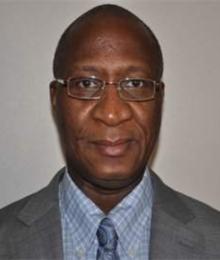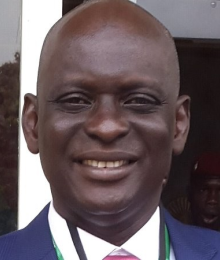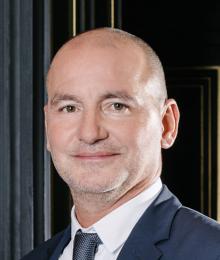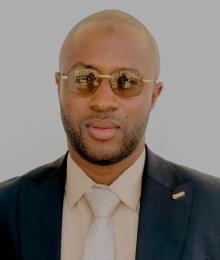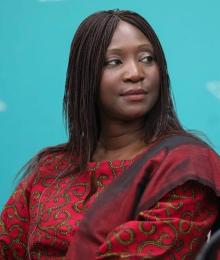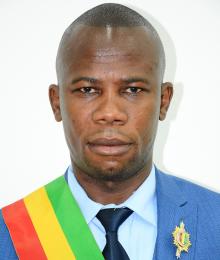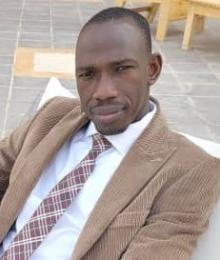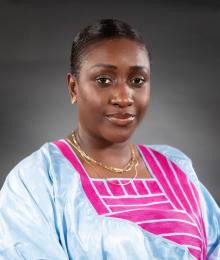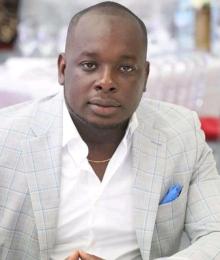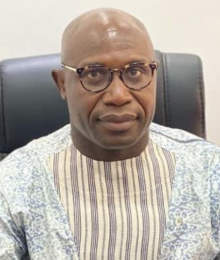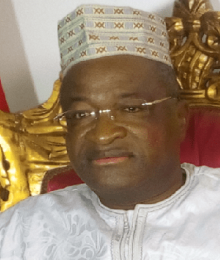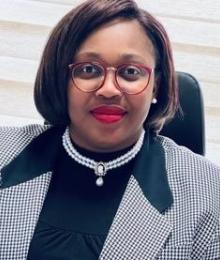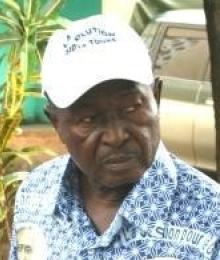
Fodé Idrissa Touré, nicknamed "Briqui Momo," was an influential Guinean political figure born in 1944 in Conakry. After going into exile in Côte d'Ivoire following a student strike in 1960, he became the Deputy Director General of the Caisse Nationale de Bouaké before thriving as an entrepreneur in infrastructure construction. He returned to Guinea in 1984, and his political career took off in the 1990s when he was elected mayor of Kaloum, the central hub of Conakry. He later became a key member of the Party of Unity and Progress (PUP) before joining Sidya Touré's UFR.
A decisive turning point in his career came during the 2010 presidential election when he broke with Sidya Touré to support Alpha Condé. By effectively mobilizing his stronghold in Kaloum, he played a significant role in securing Condé's victory, who appointed him as a political advisor to the presidency in recognition of his efforts. He held this position until his passing on August 10, 2013, at Jérrada Hospital in Casablanca, Morocco, due to severe hypertension.
Introduction
Fodé Idrissa Touré, better known by his nickname "Briqui Momo," was a significant political figure in contemporary Guinea. Born in 1944 in Conakry, his unconventional journey took him from the primary school benches of his hometown to the highest levels of Guinean power. His life, marked by numerous twists and turns, reflects the tumultuous history of his country.
Youth and Education
Originally from Conakry, Fodé Idrissa Touré first attended the local primary school before continuing his studies at Sandervalia College. His academic path took a decisive turn in 1960 when, following a student strike, he was forced into exile. He found refuge in neighboring Côte d'Ivoire, where he continued his higher education with great success.
Professional Career
The talent and dedication of the young Touré did not go unnoticed in his host country. Ivorian President Félix Houphouët-Boigny trusted him enough to appoint him Deputy Director General of the Caisse Nationale de Bouaké, a high-level position that showcased his professional abilities.
However, the call of entrepreneurship soon grew stronger for Briqui Momo. Driven by what those close to him described as the "business bug," he resigned from his position to venture into the world of business. He quickly established commercial enterprises not only in Côte d'Ivoire but also in several West African countries.
A Prosperous Businessman
Fodé Idrissa Touré found considerable success in his business ventures. He gradually built a substantial fortune in the construction sector, specializing in the development of various infrastructures such as bridges, administrative buildings, schools, and health centers. During this prosperous period, he met Sidya Touré, who would later become the president of the Union of Republican Forces (UFR), and with whom he would have complex political relations.
Return to Guinea and Political Engagement
Despite his success abroad, his attachment to his homeland remained strong. In 1984, when General Lansana Conté took power in Guinea, Briqui Momo decided to return home "to serve his country," as he often liked to say.
His political engagement truly began in the 1990s when he was elected mayor of Kaloum, the administrative and economic center of Conakry. This position allowed him to gain solid experience in public administration and expand his influence within the Guinean capital.
A few years later, he climbed the ranks within the Party of Unity and Progress (PUP), the ruling political party at the time, eventually becoming a significant and influential figure. However, his proximity to the ruling power was marred by suspicions of collusion with Sidya Touré, leading him to join the UFR in the early 2000s.
Support for Alpha Condé
The 2010 presidential election marked a turning point in Briqui Momo's political career. While his longtime friend Sidya Touré decided to support Cellou Dalein Diallo in the second round, Fodé Idrissa Touré strategically chose to back Alpha Condé. This decision, which solidified the rift between the two men, proved pivotal to the outcome of the election.
Effectively mobilizing his stronghold in Kaloum, Briqui Momo played a significant role in Alpha Condé's victory. His influence in the Kaloum peninsula secured crucial votes for the candidate of the Rally of the Guinean People (RPG). In recognition of his decisive contribution, he was appointed as a political advisor to the presidency following Alpha Condé's election.
A Controversial Figure
While Briqui Momo enjoyed undeniable popularity, particularly in Kaloum where he was considered a "role model for Guinean youth" by some, his personality was not without controversy. In November 2012, he made headlines after being accused of "violently slapping a young football player, a supporter of opposition member Baidy Aribot," in the Sandervalia neighborhood.
Additionally, in December 2012, he found himself at the center of a media controversy when he filed a defamation complaint with the National Communication Council (CNC) against the show "La ronde des journalistes" broadcast on Planète FM. This action led to the temporary suspension of the program and a broadcast ban for journalist-host Mandian Sidibé, sparking outrage from Reporters Without Borders and the Union of Free Radio and Television of Guinea (Urtelgui).
Final Days and Legacy
In July 2013, Fodé Idrissa Touré's health deteriorated significantly. He was urgently hospitalized in Morocco for intensive care due to severe hypertension, raising serious concerns. In early August, conflicting rumors circulated in Conakry about his health, with some prematurely announcing his death.
On August 10, 2013, at 11 a.m. (UTC), Briqui Momo passed away at the Jérrada Hospital in Casablanca. The presidency officially announced his death the following day, extending "sincere condolences to the grieving family, as well as to the people and government of Guinea."
On August 15, 2013, a tribute ceremony was held at the People's Palace in Conakry, attended by hundreds of people and presided over by Prime Minister Mohamed Said Fofana. The mayor of Kaloum honored his memory, recognizing his "remarkable contributions" to the community. The following day, Fodé Idrissa Touré was laid to rest in the national cemetery of Camayenne.
In acknowledgment of his impact on Guinea's political and economic landscape, a modern market in Conakry, inaugurated by President Alpha Condé, now bears the name of Briqui Momo, ensuring that the memory of this influential figure in Guinea's recent history endures.











